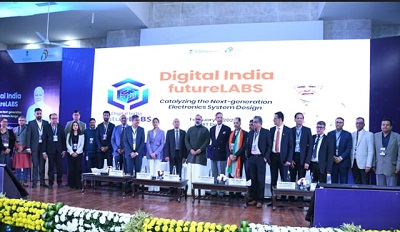New Delhi, (Samajweekly) Three indigenously-developed technologies — thermal camera, CMOS camera, and Fleet Management System — were transferred to 12 industries in India on Sunday.
During the launch of “Digital India FutureLABS Summit 2024” held at IIIT-Delhi, the technologies designed and developed by the CDAC (Centre for Development of Advanced Computing), Thiruvananthapuram under InTranSE Programme of Ministry of Electronics and Information Technology (MeitY) were transferred to these industries.
As per the ministry, it is step towards Innovation, Science and Technology theme of Vikshit Bharat @2047 initiative of Prime Minister Narendra Modi.
The thermal smart camera technology has an inbuilt DPU to run various AI-based analytics. The indigenised technology is targeted for applications across multiple domains, including smart cities, industries, defence, health & others.
The field implementation, testing and validation of this camera was done for road traffic applications.
This technology was transferred to the eight industries simultaneously.
The CMOS camera technology is an Industrial Vision Sensor iVIS 10GigE — a CMOS based vision processing system with a powerful on-board computing engine to perform the next generation industrial machine vision applications. This technology was transferred to one industry.
The third technology, Fleet Management System, which includes FlexiFleet, Personalised Transit Route Guidance System, and Operational Strategies for Headway Reliability.
FlexiFleet, aims to optimise operations and enhance the efficiency of fleet operators and transit agencies. In addition to vehicle location tracking, it provides alerts for different conditions like overspeeding, geofence, ignition, idle, halt, and rash driving. The Personalised Transit Route Guidance System is a mobile app that aims to improve the travel experience for passengers as it offers passengers the option to choose the most efficient or personalised routes of his choice.
Operational Strategies for Headway Reliability serves as a dynamic scheduling decision support tool for transit operators, aiming to enhance the reliability of public transit services by minimising instances of bus bunching. This technology was transferred to three industries simultaneously.








